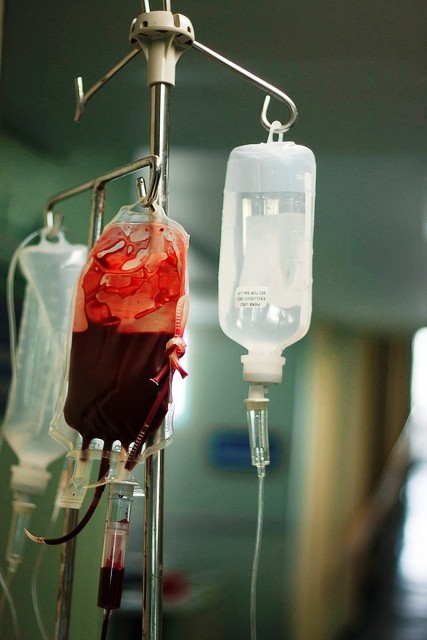Blood Transfusions Increase Infection Risk in Patients: Study

Increased number of blood transfusions in hospitals can elevate the risks of infections, according to a study.
Researchers from the University of Michigan Health Systems and VA Ann Arbor Healthcare System examined records of 21 studies involving more than 7500 patients to record incidence of hospital-associated infections. They found that patients who frequently received red blood cells transfusion are more likely to contract serious infections like pneumonia, bloodstream infections and wound infections.
Older patients who have undergone knee or hip replacement procedures are mostly vulnerable to infections and reducing frequency of blood transfusion can bring down the risks rate by 30 percent. Their findings also suggest one in 38 hospitalized patients can be protected against deadly infections by limiting the number of RBC transfusions.
Jeffrey M. Rohde, study author and assistant professor of internal medicine in the division of general medicine at the University of Michigan's Medical School said in a news release, "The fewer the red blood cell transfusions, the less likely hospitalized patients were to develop infections. This is most likely due to the patient's immune system reacting to donor blood (known as transfusion-associated immunomodulation or TRIM). Transfusions may benefit patients with severe anemia or blood loss; however, for patients with higher red blood cell levels, the risks may outweigh the benefits."
The authors warn that patients with a history of sepsis have poor immunity and are twice susceptible to infections caused by blood transfusions resulting in permanent damage to the organs.
According to the study, in 2011 more than 14 million Red Blood cells units were used across healthcare centers in the U.S. Only 27 percent of the hospitals reportedly adhere to the guidelines on minimum margins on hemoglobin and blood transfusion in patients post surgical procedures. While, about 31 percent of the hospitals have blood management programs to monitor transfusion rates.
The U.S. Centers for Diseases Control and Prevention data estimates more than 14.6 million annual blood transfusions. The agency reports also suggest bacterial contaminant in the donor's blood can cause severe adverse reactions. Diseases like Hepatitis A, B and C, HIV, dengue fever and West Nile virus can be transmitted by blood transfer and donations.
The experts advise patients undergoing surgeries to be informed about the health implications of blood transfers and procedures, option available, criteria for blood transfusion and types of blood transfusions.
The National Heart, Lung and Blood institute funded the research and is published in JAMA periodicals.
Apr 02, 2014 09:20 AM EDT




